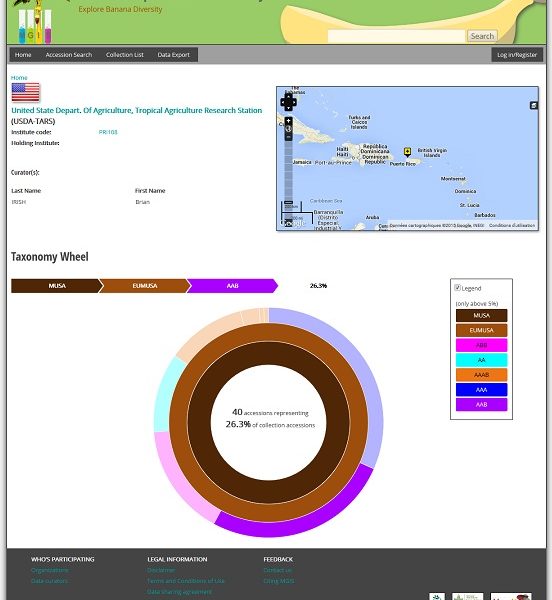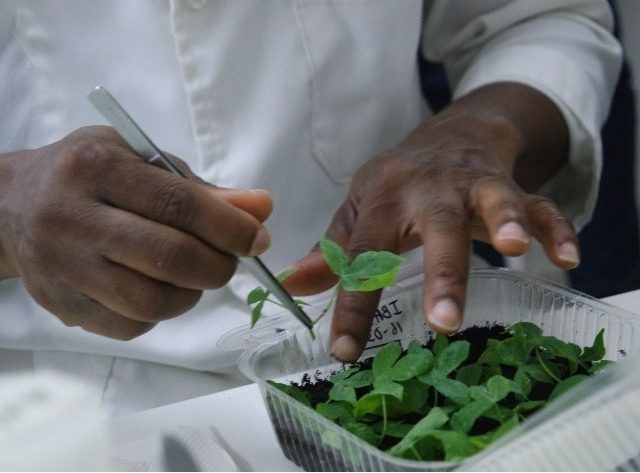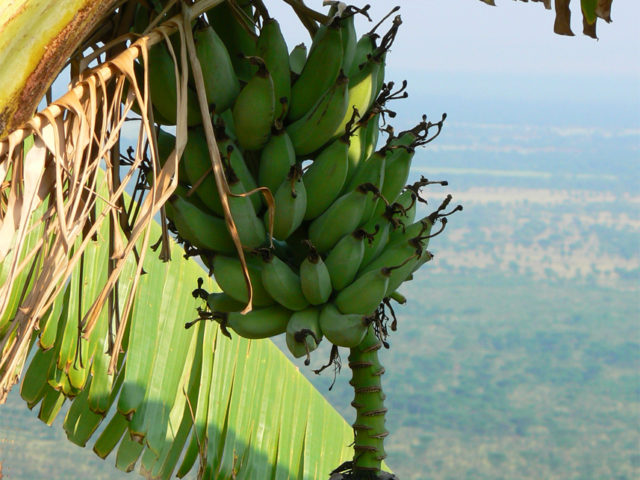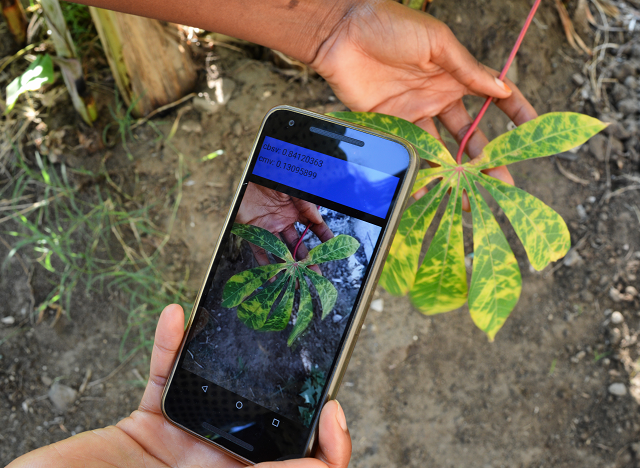The Musa Germplasm Information System (MGIS), the most extensive source of documentation on banana genetic resources, is now available on a new, improved online platform.
“The evolution of the website since it was made available in 2003 was mostly conducted by Bioversity staff based in Montpellier, France,” explained Max Ruas, the data manager. “However, nothing could be achieved without the link with the genebank and banana collection communities federated through the Global Musa Genetic Resources Network MusaNet, which provide data and feedback,” he explained.
MGIS provides information such as passport data, botanical classification, morpho-taxonomic descriptors, molecular studies, plant photos and GIS information on 2,281 accessions managed in 6 collections around the world. As more collections sign the Data Sharing Agreement (DSA) and upload their data, this important resource will expand. The Musa research community would greatly benefit from the collective data sharing of all 60 major banana collections.
Data acquisition for the system relies on collaboration with a wide range of partners, such as the genebank curators from national collections that have signed the DSA. Data also comes from Bioversity’s International Transit Centre (ITC), home to the world’s largest Musa collection, hosted by Katholieke Universiteit Leuven (KU Leuven) in Belgium.
The success of MGIS relies on high data quality. Questions related to the taxonomy are studied by the Taxonomy Advisory Group, a team of Musa taxonomic experts. Contributions and assistance are also provided by the banana genetic resources team led by Nicolas Roux, coordinator of MusaNet and RTB Theme Leader for genetic resources.
Since January 2012, users of MGIS have been able to request online material from the ITC. The primary users of MGIS are the MusaNet partners, who are also very active in testing the applications and providing feedback for improvement. The online platform is also visited by many users worldwide who are looking for specific information related to Musa germplasm.
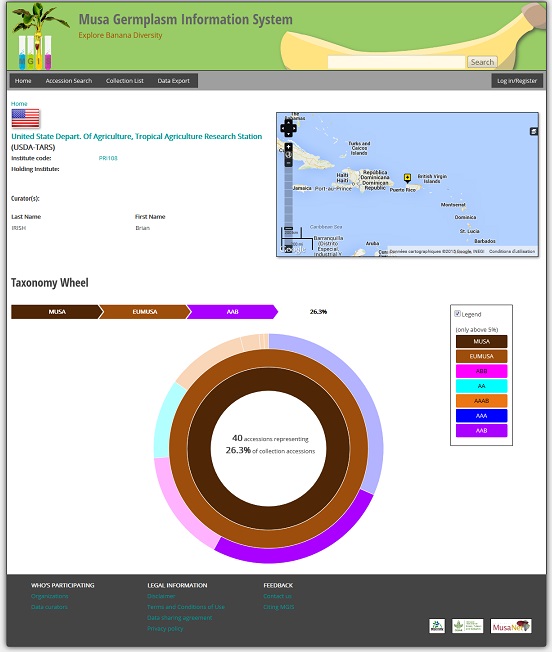
Figure 1. An example of a collection page on the new MGIS, showing the Taxonomy Wheel that illustrates the composition of the collection as well as location and other collection information.
The new version of the website contains several significant improvements, including:
- up-to-date data from collections that signed the Data Sharing Agreement (DSA)
- display of diversity trees based on molecular markers and information from several studies and results from the Musa Genotyping Centre (MGC)
User experience has also been improved through other functional changes:
- all information on a single accession can be viewed on one page and users can share comments on it.
- taxonomic content of each collection is summarized graphically (see Figure 1)
For Brian Irish, a horticulturist and curator at the United State Depart. of Agriculture, Tropical Agriculture Research Station (USDA-ARS) based in Puerto Rico, “it’s easier to search for accessions now that the database searches for matches similar to what is being spelled. Also, great to see that the partners providing the data are recognized!” USDA-ARS uses the information included in the database, and also contributes a lot to its content. They provided feedback on the new version: “Along the road, synonyms might be included for particular accessions – but I know it’s a daunting task!” Irish suggested.
Mathieu Rouard, Bioinformatics scientist at Bioversity and Chair of the MusaNet Information Thematic Group, added that “MGIS now includes a new dimension with the inclusion of molecular studies produced by Next-Generation Genotyping. This is an important step toward the comparison of the diversity that we can observe and the diversity over the genome in order to unravel traits of the banana gene pool.’’
Data manager Max Ruas explains that the site will continue to evolve in terms of features and content, thanks to the feedback and inputs from partners. “The advantages of uploading data into MGIS are beneficial to all users because it allows the comparison of passport data and thus the cross–referencing of accessions of the same cultivar. This will improve the overall quality of the data available to users,” he adds.
By Véronique Durroux-Malpartida
